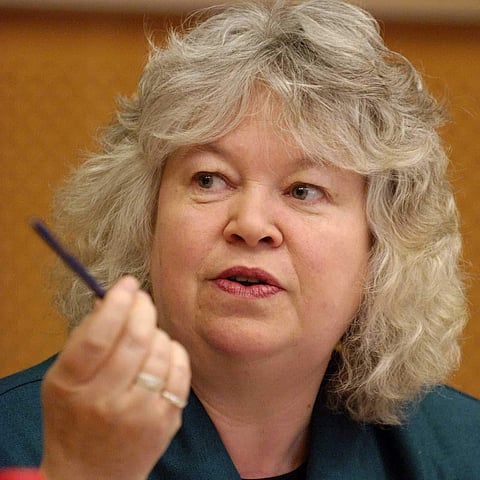

COLOMBO: Sri Lanka’s chances of getting back the European Union’s General System of Preferences Plus (GSP-Plus) trade concessions which it lost in 2010, depend on meeting the European body’s requirements in regard to human rights.
With improvements in the human rights situation after Maithripala Sirisena was elected President in January 2015, Sri Lanka applied for the restoration of the trade concessions.
Willing to consider the request, the EU is sending a four-member inspection team under Jean Lambert to the island next week. The panel will have talks with stake holders in Colombo as well as the Tamil areas of Trincomalee and Batticaloa to see if the international conventions on human rights and the conditions imposed by the EU in regard to human rights are being implemented effectively. Given the EU’s commitment to human rights, it will insist that progress in implementation be shown.
According to Gehan Gunatilleke of Verite Research and Tamil National Alliance MP M.A.Sumanthiran, the government’s Achilles Heel will be proposed amendments to the Code of Criminal Procedure and the Prevention of Terrorism Act (PTA).
“To get back GSP-Plus, the government will have to abandon the current trajectory on both these matters and change the law in accordance with the EU’s recommendations and the UN Human Rights Council’s September 2015 resolution which Sri Lanka co-sponsored,” Sumanthiran said.
Writing in The Bar Association Law Journal, Gunatilleke pointed out that the International Protocol on Civil and Political Rights (ICCPR) clearly says that a detainee should have the right to take the assistance of a lawyer right from the first questioning by the police. But Sri Lankan law allows access to legal assistance only when the accused is produced in court. And between arrest and production in court, a confession can be extracted by torture.
“The Sirisena-Wickremesinghe government did try to change the law but it ended up sticking to the old system on the advice of the Security Establishment,” Sumanthiran said.
When he protested in parliament, it went for a revision, but the outcome of this is not yet known.
The promise to repeal the draconian Prevention of Terrorism Act is yet to be kept, though moves were made to replace it. At first, the Law Commission was asked to draft a law in accordance with international best practices. And it did do a good job, according to those who had access to it. But its report was shelved and the government is presently working on a law more in line with the original PTA on the advice of the Security Establishment, Sumanthiran says.
For example, in the original PTA, a confession made to an officer of the rank of Assistant Superintendent of Police and above, is admissible as evidence in court. Sumanthiran fears that something like this may be retained.
But this is not going to satisfy the EU as it believes that confessions made to anybody in the absence of legal assistance cannot be admitted as evidence in court as they could be the outcome of torture. And as the UN Special Rapporteur on Torture, Juan Mendez, said in May 2016 torture is routine in Sri Lanka.
Gunatilleke quotes the Human Rights Commission of Sri Lanka as saying that since January 2015, 466 cases of torture have been reported to it. He recalls how a confession obtained by torture had led to a court giving a sentence of 20 years RI to noted journalist J.S.Tissanayagam.
There is little or no progress in bringing about a Witness Protection Act to remedy the situation in which witnesses are routinely threatened.
The EU might eventually restore the GSP-Plus facility to Sri Lanka in next year, despite glaring flaws in its legal system, but Sri Lanka will have a hard time meeting the challenges posed by the EU’s human rights conditions, Gunatilleke predicts.